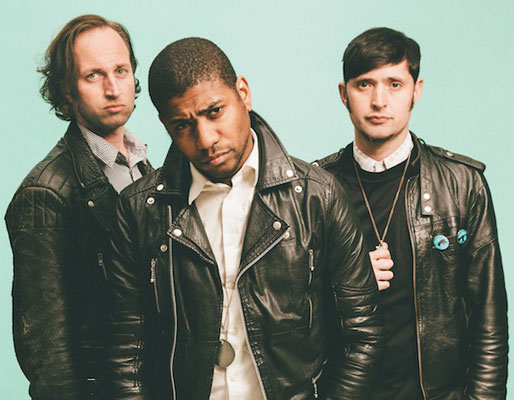Historically, ‘post-punk’ has been described as a predominately white, male, middle-class musical scene. While the reality was really very different – female-fronted bands such as Delta V and Au Pairs not only participated in the subculture, but used it as a platform for gender commentary – it has mostly been the male performers – Joy Division, Wire, Gang of Four – who’ve received the bulk of critical attention.
The first wave of post-punk revival in the early 2000s seemed to continue the trend, with mostly male performers such as Editors and Interpol rising to popular acclaim. Just a decade later, women bands with similar musical qualities, The Organ for instance, have largely been forgotten. Some would suggest that these bands were simply ‘less effective’ than their male contemporaries – but with so many female commentators describing misogynistic treatment at the hands of men within the music industry, I remain sceptical.
The past couple of years have seen some change. In 2013, for instance, the most critically acclaimed post-punk album of the year was released by all-female rock band Savages. So far, 2015 is continuing the trend of acknowledging the talent of bands once relegated to the periphery. Of ten of the most critically acclaimed albums of this year, at least two come from left-leaning bands. Then there’s the Marxist cold-wave of Algiers, a multi-racial band whose heady blend of southern gospel, social commentary and punk confronts the still-existent racial and economic tensions in modern America in a profound and novel way.
It might not seem like a huge step, but considering what critics have called the ‘unbearable whiteness’ of modern indie music, the popularity of the black, explicitly politicised musical project of Algiers represents a change in our perception of the genre in itself. Post-punk is no longer strictly the domain of white, male, or middle-class performers. The genre has expanded to embrace the complete spectrum of human experience, taking full advantage of the results of the avant-garde experiments of early- and post-punk, thereby avoiding the simplistic revivalism of the decades that preceded it – and allowing for a wider variety of musical and lyrical arrangements.
There’s a perception in creative communities typically seen as masculine that social progressivism is the death of art. The common complaint by reactionaries in such subcultures is that inclusion somehow limits our potential for creative expression; that the drive towards acknowledging or encouraging the participation of groups outside the standard demographic somehow censors or reduces the opportunities for artists with ambiguous or less-overt politics to participate in the modern version of the scene. But the current state of post-punk shows this isn’t the case: politically apathetic or ambiguous bands like Iceage or Protomartyr still draw large crowds. Older acts like Gang of Four, whose previously radical political beliefs appear to be a little out of step with contemporary progressivism, remain respected for their historical contributions to the scene, even if their latest album was mostly panned by fans and critics for being out of touch with the state of modern politics, or the contemporary genre.
This breadth of taste shows that the push towards the left isn’t forcing bands out. Instead, it’s drawing different voices in, thereby challenging the sometimes exclusionary history of punk rock and legitimising previously underappreciated or disregarded female and/or queer performers.
In Australia, the very strong post-punk revival band Gold Class were reportedly inspired by female artists and progressive politics, while Spanish post-punks Mourn mixed vocal and lyrical themes reminiscent of 90s riot grrrl with more typical alternative influences, creating a hybrid form of modern post-punk which is somehow both traditional and entirely unique. These bands are not the product of a strangled or self-restricting scene, but a living one. A subculture whose expanding boundaries are creating more potential ground for artists to cover, allowing a diverse array of new musicians, past and present, to get the recognition they deserve.
What followers of reactionary campaigns like Sad Puppies and Gamergate seem to forget is that social and political minorities have always been a part of their communities. By encouraging the perspectives they can offer, we allow our art to draw from a wider pool of potential inspirations, building more productive and creative scenes.
As a left-wing fan and participant in many male-dominated cultural communities, I have no desire to destroy the fandoms I’m a part of. I do, however, wish to extend the experience of belonging to a subculture and creating art to anyone who wants to be involved. As the vibrant state of modern post-punk shows, embracing new perspectives only strengthens our communities.
It’s time we stopped being frightened of diversity, and celebrated the evolution that inclusion brings. The old guard is fading, the new guard is rising, and the genre’s more exciting than it has ever been before. Post-punk is thriving. There is nothing to fear.



